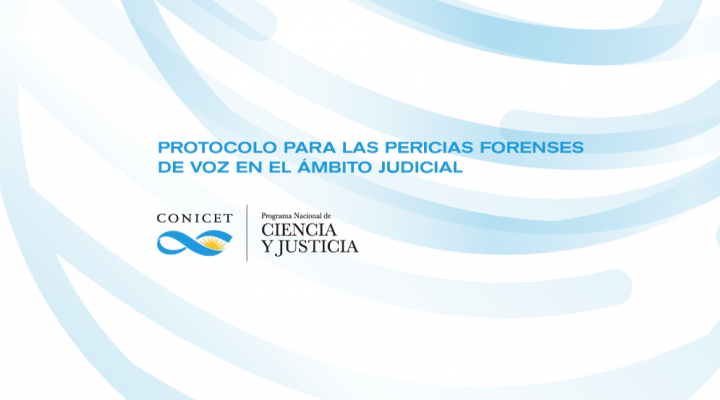NATIONAL PROGRAM FOR SCIENCE AND JUSTICE
New protocol for forensic voice examinations
This document covers from the reception of the evidence to the creation of the expert report.
Through resolution RESOL-2023-1006-APN-DIR#CONICET, the Board of Directors of the National Scientific and Technical Research Council (CONICET) approved the Protocol for forensic voice expertise in the judicial field. This tool, proposed within the framework of the Council’s National Program for Science and Justice, aims to establish a series of recommendations to follow during the different stages that make up this type of procedure and thus increase its reliability.
The document, written by the CONICET researcher at the Instituto de Inmunología, genética y metabolismo (INIGEM; UBA-CONICET) and member of the Consejo Asesor del Programa Nacional Ciencia y Justicia, Jorge Alberto Gurlekian, stipulates not only the court’s recommendations, but also those that must be taken into account by the voice laboratory that carries out the comparison of voices, as main actors in this type of expertise.
The protocol includes points aimed at the quality of the voice recordings and the technical admission criteria to be able to take them as evidence or not. Likewise, considerations are included that are related to the traceability of the process, establishing, for example, the need for a chain of custody that accounts for all movements of the test material.
The legal affairs manager of the Council and technical manager of the National Program for Science and Justice, Alan Temiño, highlighted that “the idea is to generate these documents of good practices that, although they are not mandatory, they offer an alternative and some interesting help so that those courts that want to adopt them have scientific bases to proceed with certain skills.” In this sense, Temiño stated that the Program will continue working to implement this initiative in other types of expertise and topics such as the gender perspective and the environment.
For his part, Gurlekian highlighted that “this protocol summarizes the current actions and minimum requirements that must be carried out so that the voice comparison skills are admitted by the justice actors of both the accusing and defending parties. The technological changes motivated by the pandemic will make it possible -shortly- to make unquestionable recordings in the same judicial area, maintaining the quality levels mentioned in this protocol.”
In this framework, the Program for National Science and Justice assumes the commitment to design a training plan for the implementation of this protocol aimed at justice agents when required, while reaffirming its mission to articulate the scientific innovations with the tasks of justice services.
If you are interested in knowing more about the contribution of forensic technologies to Justice, you can access the following podcast. There, Jorge Gurlekian and Pablo Negri – Council researcher at the Computer Science Research Institute – take a tour of this topic
